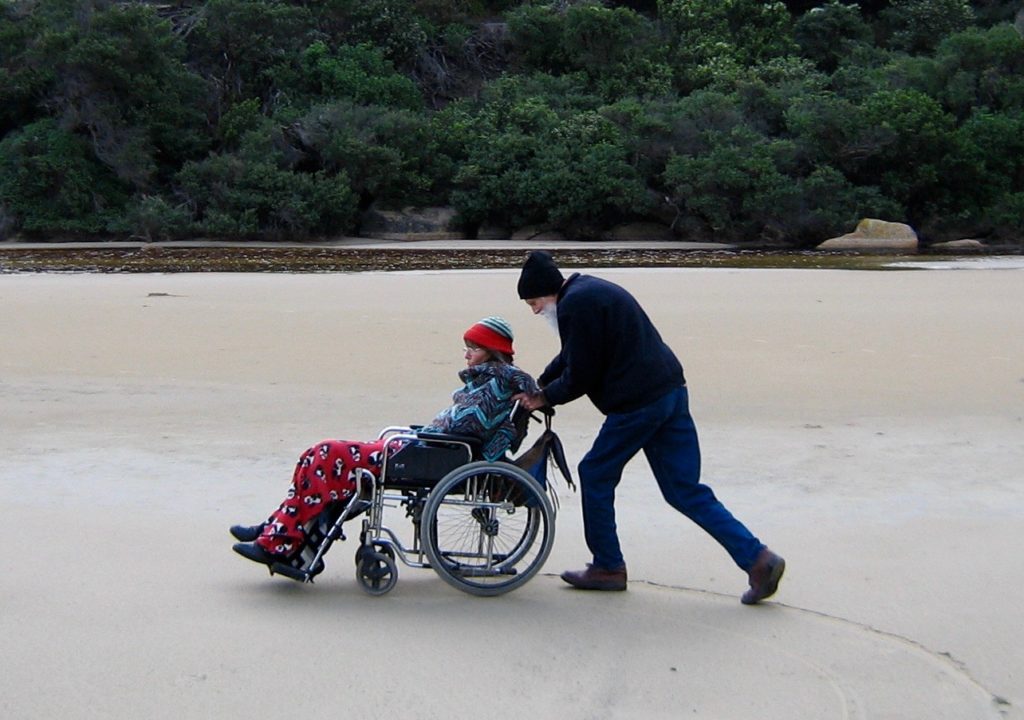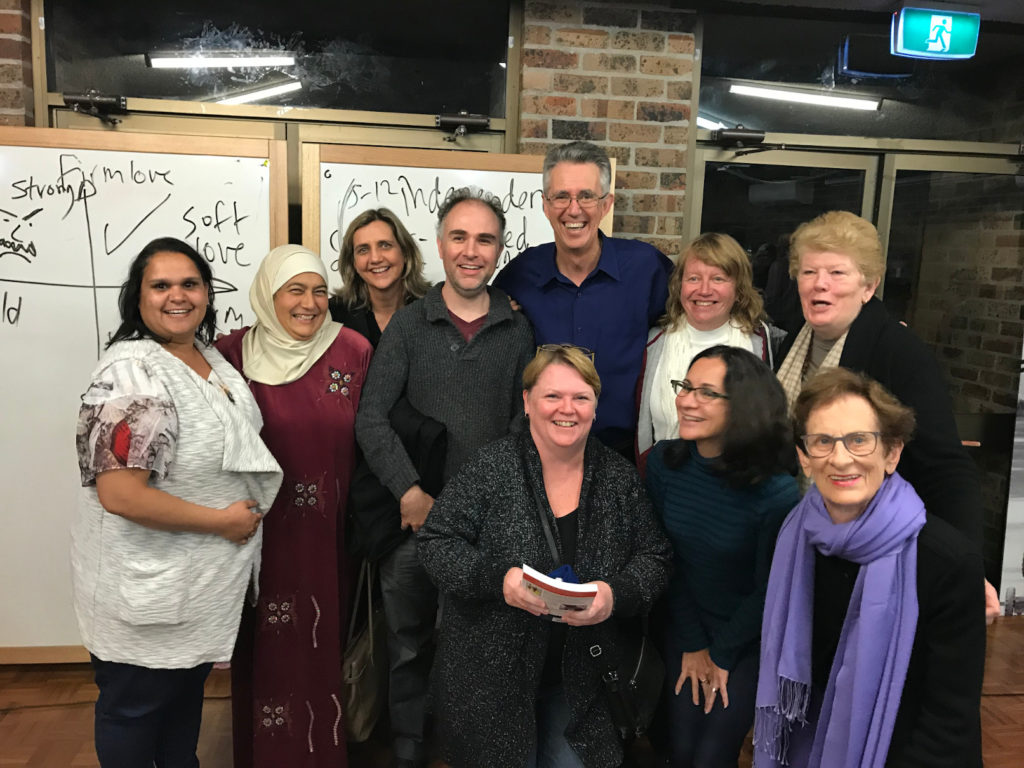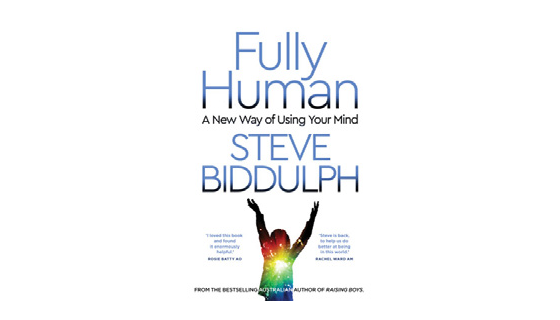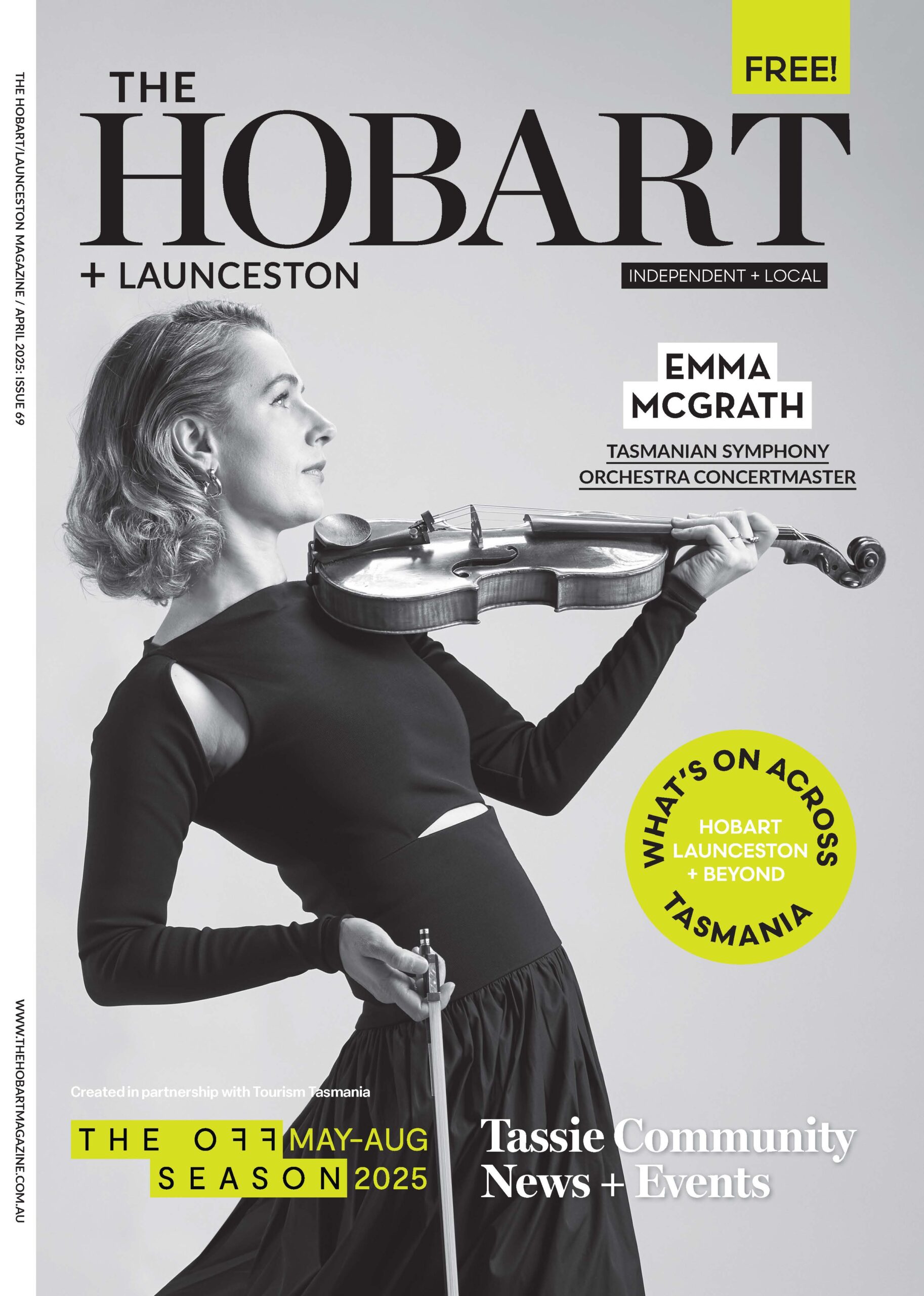Psychologist Steve Biddulph: A New Way of Using Your Mind
by Stephanie Williams

Tasmanian author and psychologist Steve Biddulph has sold over three million books and is now celebrating the release of his latest book, Fully Human, a distillation of his 40 years as a therapist.
You’ve had great success with Raising Boys and Raising Girls. What can readers expect from Fully Human? People tell me that my books are very clear and easy to read. And they have stories that sneak up on you and make you cry. This one has more personal stories as I wanted people to know that suffering is part of everyone’s life and it’s okay and we can still laugh and love and be joyful.
There are two big ideas in the book. The first is “supersense” which is the wild animal part of us that helps us know if we are safe, and making the right choices, and helps us read and connect with the other lives around us. It is part of our brain that only talks to us through our gut – literally gut feelings. We can sense in our bodies when something is right or wrong, and the big breakthrough is this part is talking to us all the time. The book teaches you to listen to it every minute you are alive. Your life changes the second you realise this, you have a compass. It’s not always right, but it’s always got something to tell you.
The second is that we can move through our own mind more freely if we know the architecture of the mind – that it’s like a four storey mansion. Many people only live on one floor! They think the accommodation is crap! So we teach you to move up and down constantly – through body, emotion, thought, and the rooftop garden of your mansion which is out of your own skin – the sense of spirit.
Who is this book aiming to help? This was a book I always wanted to write because I had worked with people in some of the worst situations in the world – who had somehow travelled to not just a normal life, but to something even better. They were remarkable and special, they had learned “to open their hearts in hell”. Andie, the young mum at the start of the book, who was a part time GP, survived trauma and it made her a really remarkable practitioner whose patients just loved her. And many others had this too – post traumatic growth, which broke them open so they could help others.
I was worried that still today millions of parents around the world struggle, and yet our kids depend on us being reasonably happy and calm and steady. So the mental health of adults really matters. Yet almost everyone has trauma and damage from their childhood. I wanted to help grown ups to use their minds better so they could feel really well and alive. The ideas can be taught to a five year old, but can help the most damaged adult. I know because I have done both.
How long have you been working on Fully Human? What was the catalyst? I think for the forty years since I first sat down with someone in trouble in a counselling room, this book was writing itself. But the Covid crisis gave me the time and freedom to get it all down! And a canoeing accident that I write about in the book made me realise I was getting old and had better not waste time.

In the book you discuss your Asperger’s diagnosis. How has that affected your life and work? How old were you when you made the discovery? Nobody knew about ”the spectrum” in my young life. I was diagnosed at about age 55! A bit late really! I was a lost teenager and was rescued by youth workers. They steered me towards psychology. I have always had to explain things before I could function around people. But in the end that makes you very good at it. Marrying my wife Shaaron was the best help ever, she is very, very emotionally aware. I am still nervous and shy by nature, though on a stage the inner performer comes alive. I have been a “stand-up psychologist” for many years. You can do group therapy with 500 people at a time, crying and laughing at the same time. We Aspies tend to act on things. I built the SIEVX Memorial in Canberra, involving over 1,000 young artists, to remember the lost refugees on that boat. It felt like there was no choice. Like Greta Thunberg, I get activated about the big things.
I’d be interested to know where you feel psychology and mental health support is in Tasmania right now? Could the Tasmanian government be doing more? Could they be doing LESS? I am not the best person to ask, but you only have to read the newspapers. I tend to see the burnt out and despairing practitioners who started out caring and ended up barely surviving. Look after the health staff better and let them do their jobs.

You have incredible Australians such as Rosie Batty saying this book is enormously helpful – how does that make you feel? The fact that Rosie, after all she has come through and has given to others, found the book a help, was the best news I have had this year.
There’s a section in the book that discusses “messed up men”. The anecdote you use about a fellow student is particularly strong. My friend taking his life was, and remains, a mystery. But it set me on a course of finding out how to keep men alive. The importance of touch and gentleness is one missing piece. Being able to go to the second floor, and feel.
You discuss how common trauma is and the effect it has on long term health. How can we better understand trauma in our lives? Every event we go through generates emotions which are meant to help us through. If things happen too fast, we end up storing emotions for later. If we were raised not to understand or “ride along” through our emotions, we might just gather more and more. But our body is designed to let feelings through and let them go. Sometimes that needs someone on the outside who can handle the intensity of our pain, whose care and love matches the intensity we were harmed with.
Is the success of your previous books daunting when you release a new book into the world? Nah! You just hope you can be of more help. It’s not about you, after all.
What do you do after you release a book? Lots of interviews! Ha Ha!
What does your day to day life look like? What do you enjoy doing? I love being out under big skies, and being with family. And anything involving water.
What do you enjoy doing in Hobart? I love to swim in Frederick Henry Bay, or kayak when it’s cold. It’s very quiet usually and you can feel it’s the edge of the wild. Sometimes there are dolphins. I also love going out on the Lady Nelson whose crew are friends.
When you start to feel overwhelmed or anxious, what are your personal strategies? I feel this way about 20 times a day. I follow what is in the book. I go down into my body and “ask” it what it’s experiencing. Sometimes it gives a little shudder, or a deep sigh, or seems to want me to sit still a bit. It seems to sort itself out and then I can go on. Take care of the wild creature inside you, it knows more than you do, about what you need.


